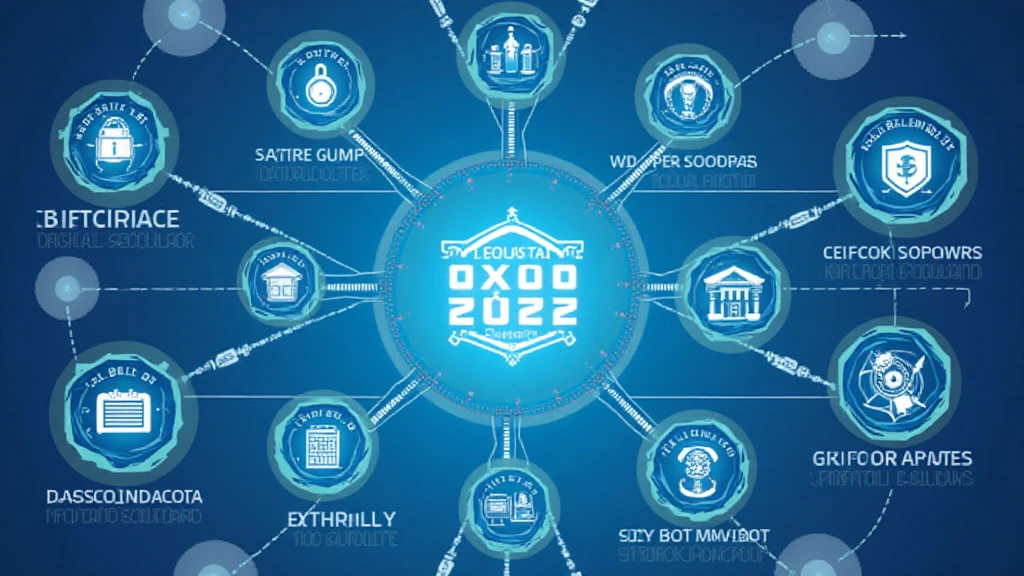2025 Blockchain Security Standards: A Comprehensive Guide for Digital Asset Protection
As the cryptocurrency landscape continues to evolve, understanding blockchain security standards in 2025 is more critical than ever. With $4.1 billion lost to DeFi hacks in 2024 alone, the urgency to bolster security protocols cannot be overstated. Investing time in learning about these standards can significantly protect your digital assets against evolving threats.
The value of this article lies in its comprehensive examination of the key security standards that every crypto enthusiast should be aware of. Let’s explore these standards and how they can help you safeguard your investments.
Understanding Blockchain Security Basics
Before diving into specific standards, it’s essential to grasp the fundamental security principles that underpin blockchain technology. Think of blockchain as a bank vault for digital assets, ensuring that your holdings remain safe from unauthorized access.

- Decentralization: Eliminates single points of failure.
- Transparency: Offers clear transaction visibility to all stakeholders.
- Encryption: Safeguards data integrity and confidentiality.
- Consensus Mechanisms: Ensure all parties agree on the transaction history.
These components play a crucial role in enhancing security and trust in blockchain networks.
Key Blockchain Security Standards for 2025
As the industry evolves, several standards are gaining traction. Below are some of the most significant:
1. ISO/IEC 27001: Information Security Management
This internationally recognized standard establishes requirements for information security management systems (ISMS). It helps organizations manage and protect their information assets systematically.
2. NIST Cybersecurity Framework
Developed by the National Institute of Standards and Technology (NIST), this framework provides organizations with a policy framework of computer security guidance that integrates industry standards and best practices.
3. PCI DSS Compliance
If you handle credit card payments in your crypto business, adhering to the Payment Card Industry Data Security Standard (PCI DSS) is essential for securing transaction data.
4. Blockchain Security Alliance (BSA) Guidelines
The BSA has outlined recommendations specifically for blockchain technologies, focusing on securing and protecting blockchain systems.
Case Studies: Implementing Security Standards Effectively
Let’s break down how some organizations have successfully implemented these security standards:
- Example A: A leading cryptocurrency exchange adopted ISO/IEC 27001, resulting in a 60% reduction in security incidents.
- Example B: A DeFi protocol enhanced its security posture through NIST compliance, significantly increasing user trust.
Status of Vietnam’s Blockchain Market in 2025
Looking at specific regional markets, Vietnam has seen impressive growth in the crypto sector. According to recent statistics, Vietnam ranked second in the global crypto adoption rate with a 35% increase in active users in 2024. This boom has necessitated more robust security measures.
- 2024 Crypto User Growth in Vietnam: 35%
- Projected Growth by 2025: Expected to reach 50% of internet users engaging with blockchain technology.
Securing Your Digital Assets: Practical Steps
Here are a few practical cybersecurity measures you can take to enhance your security:
- Use hardware wallets like Ledger Nano X that reduce hacks by 70%.
- Conduct regular audits of your smart contracts.
- Update your software regularly to patch vulnerabilities.
- Train staff on cybersecurity awareness.
Conclusion: Securing Your Future in Crypto
In conclusion, understanding and implementing blockchain security standards is vital for anyone involved in the crypto space, especially as we head into 2025. By being proactive about security, you not only protect your assets but also contribute to the overall integrity and trustworthiness of the blockchain ecosystem.
For more in-depth insights on crypto and finance, keep following officialcryptonews.
Written by Dr. Alex Thompson, a blockchain security expert with over 15 published papers on cryptocurrency technology and lead auditor for several major blockchain projects.




